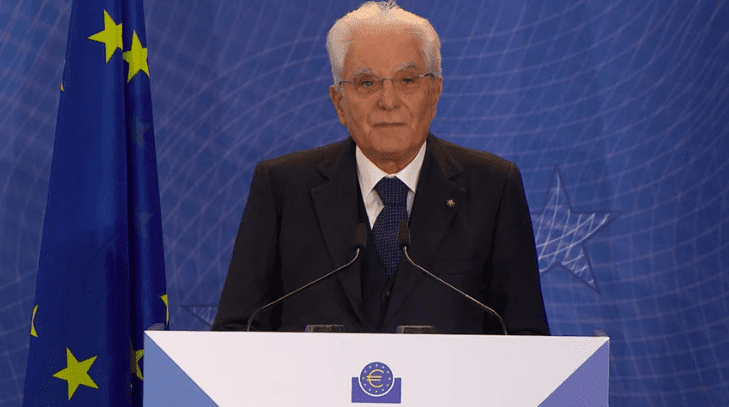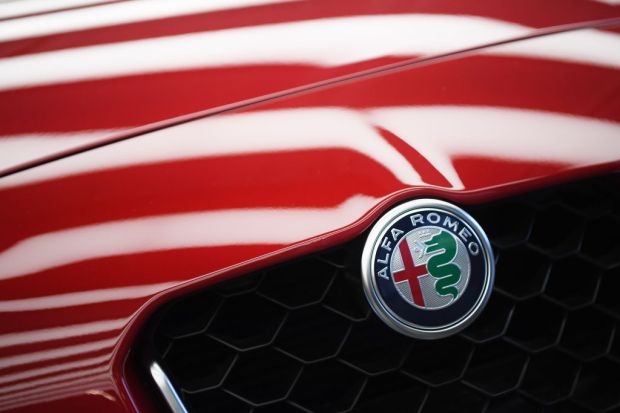Ah, those Italians! Italy’s parliament spent last week trying and failing to elect a new president in seven secret ballots. Then, in the eighth ballot on Saturday evening, by a huge majority it re-elected the old one – Sergio Mattarella – against his will.
Mattarella, 80, formerly of the post-communist Partito Democratico (PD) and now an independent, had repeatedly said he did not want to serve a second seven-year term. He had even moved out of the Quirinale – the presidential palace – and into a flat elsewhere in Rome.
He was not actually a candidate because there are no formal candidates in an election for an Italian president whose powers, though limited, are often of crucial importance. The electorate – in this case, 951 Senators and Deputies and 58 regional delegates – simply votes for whoever they want as president by writing their name on a ballot paper. Those voted for are, though, usually asked beforehand if they mind.
But when, after days of failing to agree on anyone else, the grandi elettori cast 759 votes for Mattarella in that eighth ballot, he felt unable to refuse. He accepted, he said, out of a sense of duty to the Patria.
This typically Italian tragi-comedy has weakened and divided Italy’s parliament even more than it already was. Above all, it is a disaster for the coalition of the right which now risks a major reset, if not disintegration. This is despite poll after poll indicating it would win enough seats to get that most rare and precious of things in Italy at the next general election which must be held by 1 June 2023: a majority of the seats in parliament.
Two of the three parties in the coalition, the Lega, led by Matteo Salvini, and Silvio Berlusconi’s conservative Forza Italia, pledged that they would never vote for a second Mattarella presidency. But in the end they did. Without their votes, in a parliament where no one party or coalition has a majority, he would not once again be president.
A furious Giorgia Meloni, leader of the post-fascist Fratelli d’Italia, the third coalition partner, which kept its word and did not vote for Mattarella, told journalists that the coalition is now ‘pulverised and in pieces’ and ‘must be rebuilt from scratch’. At their last meeting on Friday evening before Saturday’s seventh and eighth ballots, she revealed, her two coalition allies had pledged once more not to vote for Mattarella. And they betrayed her.
The disgust many Italians are sure to feel at this Mattarella stitch-up – Meloni insisted – will be directed at all the parties who voted in favour of it and: all of them except hers. I am sure she is right.
The result is also a personal disaster for the 85-year-old Berlusconi who withdrew as the right’s candidate two days before last Monday’s first ballot for reasons that remain unclear. He said he had come to accept that he was too divisive a figure to become president; his enemies said the reason was simpler: that he lacked the votes. Yet Berlusconi had many more guaranteed votes than any other candidate, even if not a majority. And the day after his withdrawal he was admitted to hospital where he remains undergoing treatment, it is said, for a urinary tract infection. From hospital he participated in the feverish electoral horse-trading via Zoom. Not only did he support Mattarella, sources close to him say that he also convinced many others to do so as well.
Mattarella Two, as they are calling it, is a snub for Mario Draghi, Italy’s prime minister, who had made it plain that he felt his time as premier was over but that as president he could perform the role of benevolent nonno(grandfather). Far too many in parliament, however, were desperate to avoid the consequences of the ex boss of the European Central Bank and ex managing director of Goldman Sachs becoming president. Draghi is not even an elected politician as he was appointed prime minister by Mattarella himself last February to head an emergency government of national unity after parliament had failed, as often happens, to find a prime minister from among its elected politicians.
Yet regardless of all that, before voting began he was favourite in the polls to become president with Berlusconi in second place. But in the event, he got only a handful of votes in each of the ballots.
They did not vote for him because the only way to stop the snap election they so dread was to keep him as prime minister. If he had become president, parliament would fail to find a new prime minister from among its ranks and so would have to go to the people. The thing most Senators and Deputies want to avoid at all costs right now is the electorate – above all for reasons of self-interest.
A third of the seats in parliament are due to be axed at the next general election under a major reform and with them all those huge salaries and perks. In addition, first term parliamentarians who fail to serve four and a half years of parliament’s five year mandate lose their right to their infamously generous pensions. They have to cling on for a good few months more.
The fear of losing power is also troubling many politicians. The alt-left 5 Stelle has the most parliamentarians but is riven by schism and its support has plummeted from 33 per cent of the vote at the 2018 general election to about 15 per cent in the polls. It wants to avoid elections like the plague.
The PD, on the other hand, which has the third most seats, tops the polls just ahead of the Lega with the second most seats, and Fratelli d’Italia (all on about 20 per cent). But it wants to avoid elections as well, as there is no way it can form a government: it lacks allies with enough support.
Nor do the Lega or Forza Italia (polling around nine per cent) want a snap election either even though, together with Fratelli d’Italia, the polls say they would do well enough to form a government. But they are part of Draghi’s national unity government and quite like it for now.
Fratelli d’Italia is the only major party that refused to join the Draghi government on the not unreasonable grounds that it is illegitimate given his unelected status. And it was the only major party that voted as a block against Mattarella. At the 2018 general election, it got only 4.4 per cent of the vote and has only 63 Senators and Deputies but its popularity has rocketed since.
However it is also the only party that opposes Draghi’s vaccine passport regime which is among the most draconian in Europe: it effectively bans the unvaccinated from nearly everywhere and makes vaccination compulsory for the over 50s.
Defending the right not to vaccinate is not much of a vote winner in Italy as the overwhelming majority of Italians approve of the vaccine passport regime. As a result, Fratelli d’Italia which had become the most popular party in Italy in the polls has lost some support, though it remains within about one percentage point of the PD and Lega.
Fratelli d’Italia – I think – is the only party – whether of the right or the left – which will benefit from the tragic farce played out in the Italian parliament last week, which has shown yet again how incapable the Italian parliamentary system is of doing even the democratic basics.
But unlike the parties of the left, or its two right-wing allies, Fratelli d’Italia is not tainted by participation either in Draghi’s enlightened dictatorship or in the Mattarella vote – what Meloni has described as ‘squalid little political theatrics’. This will surely be reflected in the opinion polls in the coming weeks and months as the funeral of this failed parliament draws ever closer.
Got something to add? Join the discussion and comment below.
Get 10 issues for just $10
Subscribe to The Spectator Australia today for the next 10 magazine issues, plus full online access, for just $10.



















Comments
Don't miss out
Join the conversation with other Spectator Australia readers. Subscribe to leave a comment.
SUBSCRIBEAlready a subscriber? Log in